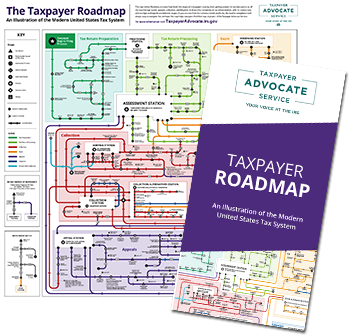
View our interactive tax map to see where you are in the tax process. It could help you navigate your way through the IRS.

Notice of Intent to Levy and Notice of Your Right to a Hearing is mailed to taxpayers to notify them of their unpaid taxes and that the IRS intends to levy to collect the amount owed if it is not paid within 30 days. This letter is required by IRC § 6331 before the IRS issues a levy, unless collection is in jeopardy. Taxpayers are not entitled to a pre-levy hearing under IRC § 6330(f)(4) if the levied source is a state tax refund, the IRS has issued a disqualified employment tax levy, or the tax debt is that of a federal contractor . For further information, see Publication 594, The IRS Collection Process, and Publication 1660, Collection Appeal Rights.
If you have a tax debt, the IRS can issue a levy, which is a legal seizure of your property or assets. It is different from a Notice of Federal Tax Lien (NFTL) — while an NFTL makes a claim to your assets as security for a tax debt and puts your creditors on notice that the IRS has a claim to all your property and rights to property, the levy takes your property (such as funds from a bank account, Social Security benefits, wages, your car, or your home). For specifics, see Levies.
This notice is your right to request a Collection Due Process (CDP) hearing prior to the IRS taking your property. You’ll have until the date shown on the notice to request a CDP hearing with the IRS Independent Office of Appeals (Appeals). If your request for a CDP hearing isn’t timely, you can request an Equivalent Hearing within one year from the date of the CDP notice, but you can’t petiton the U. S. Tax Court if you disagree with Appeals’ d ecision. For more information on our appeal optons , click here . See Publication 1660, Collection Appeal Rights, for a full explanation of the CDP process.
You have a balance on your tax account. A notice was sent to you previously letting you know how much you owe, when it was due, and how to pay. Since the IRS did not hear from you, it is continuing with its collection process and has sent you one of the following: